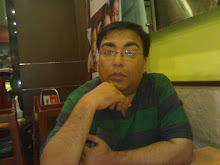The Healthcare Services as we know it and most of what I have been writing on this blog I must confess applies to the metropolitan India, largely comprising of a handful of large cities. The real India, which still continues to reside in smaller cities and villages has very poor access to good quality healthcare. In rural India the healthcare services are almost non existent.
My mother who lives in Lucknow, which is a the capital of the most populous Indian state Uttar Pradesh often needs to travel to Delhi for her cardiac care needs. Lucknow is a large city with over 7 million people. It has a famous medical college the King George's Medical College as well as a Post Graduate Medical Institute named after Sanjay Gandhi. These institutes are owned by the government and have great facilities, but they are like any other government institute, filthy, overcrowded, staffed with callous and poorly paid doctors and medical personnel.
In the realm of private healthcare there are motley nursing homes, which are poorly equipped and run by mercenary doctors. Most of them provide a basic level of care and God forbid if one needs anything more than that, one needs to head for Delhi 500 kms away.
If such is the state of affairs in a city like Lucknow one can imagine the kind of facilities that one can expect in other smaller towns in moffusil India.
This has often made me wonder about the great opportunity that this affords. With increasing affluence and heightened awareness about health issues in smaller towns I would expect a lot of patients to flock to corporate hospitals, which promise better care.
A model of private healthcare with Primary Health Centres in villages and small towns, secondary care hospitals in district headquarters and larger tertiary healthcare centres in large cities all linked together, can be constructed as a viable business model. The rural and the semi urban centres should be able to funnel a large number of people to secondary and tertiary care hospitals thus helping them access superior quality care.
These hospitals can be set up as budget hospitals, with emphasis on higher quality medical care, good hygiene and infection control and less of imported marble and fancy fixtures. The hospitals should be designed less for luxury and high on functionality.
Medical schools in India churn out thousands of graduates every year. Many of them choose to move to bigger cities like Delhi or Mumbai but many prefer to work in smaller cities usually the cities and towns where they grew up and went to medical school. These doctors can be employed in these hospitals at competitive salaries, and afforded growth and career opportunities across the network of Primary, Secondary and Tertiary healthcare centres. The nursing and paramedical staff is fairly easily available and with proper training can be employed in the hospitals.
Healthcare system like this, which target millions living in small town India can generate immense amount of revenues. The pricing of course would be the key. I would reckon that healthcare services in these hospitals can easily be priced at less than what the present day nursing homes charge. And the care can be far superior. These hospitals would be high volume thin margin businesses, with built in synergies through sharing of equipment, people and processes.
Moreover with increasing penetration of health insurance, price as a decisive factor is gradually disappearing. The hospitals can also encourage people to buy health insurance and avail of cashless services at the hospitals. Managed healthcare programs can also be introduced, covering individuals and communities through group insurance schemes. The hospital can support schemes, which allow people to contribute a small sum regularly to a healthcare fund, from where money can be withdrawn during the times of need.
All this and more is possible if one was to start looking at small town India and aim to make ones fortune from the proverbial 'bottom of the pyramid'. In India the base of the pyramid is huge and the opportunity mammoth. It is high time someone bet on it.

No comments:
Post a Comment